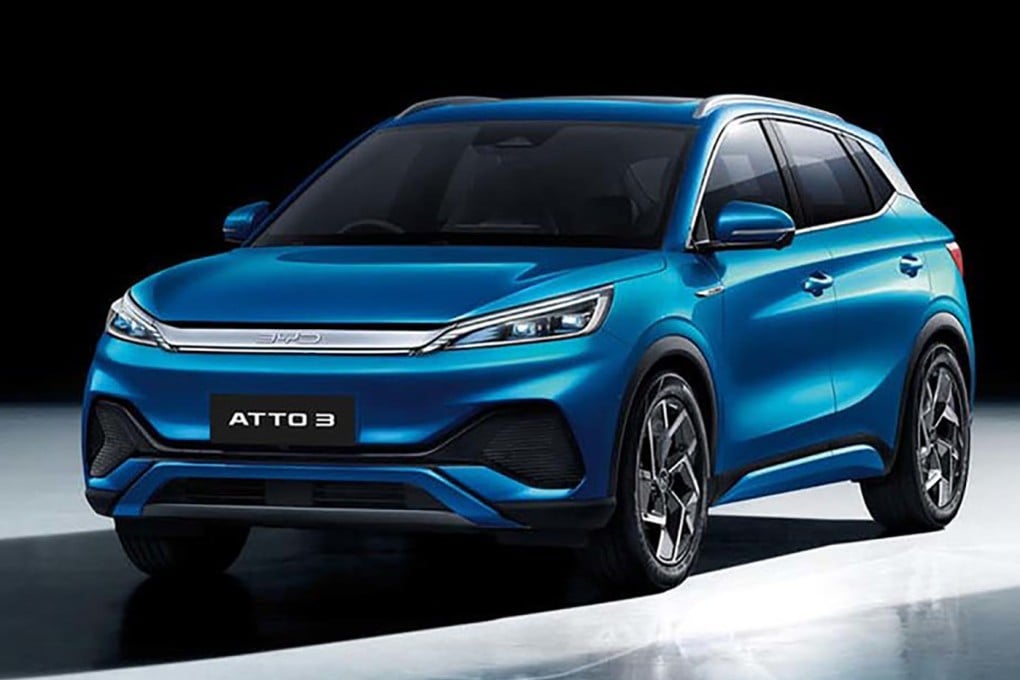Advertisement
China’s BYD to launch new SUV in Thailand, in effort to spark the country’s electric car market
- One Thai automotive journalist believes BYD’s launch of the Atto 3 next month will transform the image of Chinese car brands in Thailand
- BYD recently overtook Tesla as the world’s largest EV brand, selling 641,000 vehicles in the first six months of 2022 compared to Tesla’s 564,000
Reading Time:4 minutes
Why you can trust SCMP

Thailand could be the new battleground for Chinese EVs as mainland firm BYD becomes the latest brand to launch in the Southeast Asian country, but inflation could hamper consumers’ spending on new vehicles, analysts warned.
Next month the Chinese EV manufacturing giant will launch the SUV model, the Atto 3, and Thai automotive journalist Nithi Thuamprathom thinks the image of car brands from China will be transformed in the country.
“BYD has appointed a local sales representative and is trying to position itself as not one of those ‘cheap Chinese vehicles’ in Thailand,” said Nithi. “I’d also expect a pricing difference from BYD compared to other Chinese EV makers here,” he added.
Advertisement
The EV industry in Thailand has seen a dramatic leap in the past few years. The wide popularity of Chinese EVs started with the launch of an electric vehicle from MG in 2019.
More than 3,600 new EVs were registered in the first seven months of this year, taking the total registration to more than 7,600 vehicles, compared to 3,100 vehicles during the same time last year or a 142 per cent increase, said Federation of Thai Industries’ vice-chairman and spokesman for the group’s automotive club Surapong Paisitpatanapong
Advertisement
MG along with Great Wall Motor (GWM), which launched the ultra popular Ora Good Cat last year occupy more than half of the EV market share, with virtually no rivals. The mainland firms achieved this status, despite a chip shortage, a fallout of the Russia-Ukraine war, that led to delayed deliveries by many EV makers this year.
Advertisement
Select Voice
Choose your listening speed
Get through articles 2x faster
1.25x
250 WPM
Slow
Average
Fast
1.25x